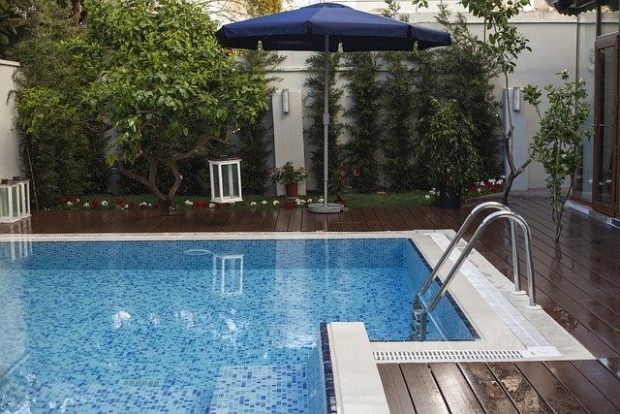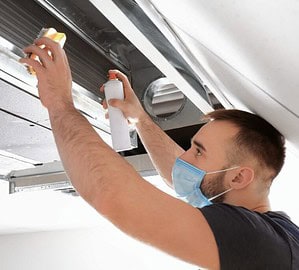
Pool maintenance is one of the most important things you can do to keep your pool clean. There are a lot of ways that pools can get dirty, including just normal use by people and pets. Residue from these sources can lead to bacteria growing in the water, which also leads to health problems like ear infections and rashes. The best way to avoid this is by cleaning your pool regularly with products designed specifically for pools. One thing that many people don’t realize about their swimming pool is that they’re actually supposed to clean it on a regular basis! This article will help you understand why this is so important and how easy it really is! You’ll be glad you took the time to learn about this!
1. What is a Pool Maintenance
Pool maintenance is one of the most important aspects of any pool owner’s responsibilities. Regular maintenance will allow you to identify potential problems before they become major expenses. Checking your water chemistry is an easy way to ensure that your pool is safe for swimming, and can help prevent algae growth, bacteria blooms, and other dangers.
2. Equipment required for pool maintenance
When you’re creating a maintenance schedule for your pool, the first thing that you’ll need to do is gather some equipment! You’ll want to have a skimmer or net handy, as well as a vacuum cleaner. A robotic pool cleaner is an automatic, self-contained device that has brushes, filters, and pumps for cleaning pools. They are generally programmed to run 24 hours per day, 7 days per week, or can be scheduled to clean your pool when you want it cleaned. These robots are very popular because they do not require human interaction, and they work automatically! Some will also have a remote control, so you can start them from a distance. These will make cleaning the water much more efficient! You’ll also need pH test strips, a chlorine test kit, and a brush for scrubbing the walls of your pool.
3. Maintaining A Pool
Maintaining a pool is easy and takes very little time, but it is extremely important to make sure that you do it correctly! There are a lot of products available for cleaning pools, including chlorine shock and algaecide. These will help kill any algae or bacteria growing in your water if it starts to get dirty. However, make sure that you are following the instructions on how to use all of these products properly. Also, make sure you are using the correct ratios for shock or algaecide to water when adding it into your pool! This will help ensure that you clean your pool effectively every time.
4. Why Is It Important To Keep Your Pool Clean
The two primary reasons why it is important to keep your pool clean are safety and aesthetics. Keeping the water clean will make sure that there are no bacteria in it, which can lead to various infections or rashes. This will also help prolong the life of the equipment because debris won’t be able to stick onto them as easily. Keeping your pool clean also means that people won’t be able to see dirt at the bottom of it. Nobody wants to swim in dirty water!
5. Who Can Benefit From Pool Maintenance
Everybody with a swimming pool can benefit from pool maintenance, as well as their guests. As mentioned before, this will ensure that there aren’t any bacteria or other problems causing elements in your pool, which is important for both safety and aesthetics. Last, but not least, pool maintenance is a great way to prolong the life of your swimming pool equipment because it makes cleaning much easier.
6. How To Clean A Pool
Knowing how to clean a pool properly will make all the difference when it comes down to whether or not you’re going to be able to accomplish the task. The first and most important thing you’ll need is a skimmer or pool net. You can use this to scoop up debris in the water, getting it out quickly and easily. Once you’ve gotten all of the visible items out of the water, take a moment to brush the walls and steps thoroughly. This will remove any residue or dirt that you can’t see in the water. Then, use your pool vacuum to get the floor and any other areas in your pool that are difficult to reach.
7. How Often Should You Test Your Swimming Pool’s Water Quality, pH Levels, and Chlorine Levels
It’s important to test your swimming pool’s water quality on a weekly basis. This will allow you to identify when something is wrong with the pool and act quickly.
The pH levels of the water in your pool should be between 7.2-7.8. You can adjust this by using products designed for pools or an automated system to maintain it at this level.
The chlorine levels should also be tested monthly to make sure they are above the minimum required of 1 ppm. If you need to do a shock treatment, make sure you test the chlorine level one day before and one day after the treatment.
8. What To Do If You Have Algae In Your Pool
If you notice that you have algae in your pool, act quickly to make sure it doesn’t spread! The first thing you should do is brush the walls of the pool, making sure to get all of the algae off of them. Then, use your skimmer or net to get any items out of the water that seems suspicious. Once you’ve done this, do a thorough vacuuming of the floor and walls of your pool with your vacuum cleaner. If there are still some stubborn pieces of algae, you can use a liquid chlorine treatment to get rid of them.
As you can see, keeping your pool clean is extremely important! Nobody wants to swim in dirty water, but it’s also very bad for our health if the pool is dirty. It’s important for your safety and the health of others if you take the time to clean it regularly with products designed specifically for pools. If you’re not sure how to go about doing this, or have any questions at all, be sure to ask someone! You’ll be glad that you took the time to learn about this!




